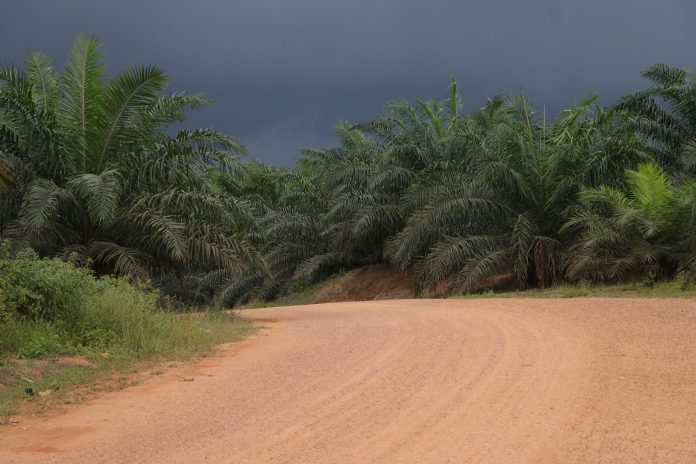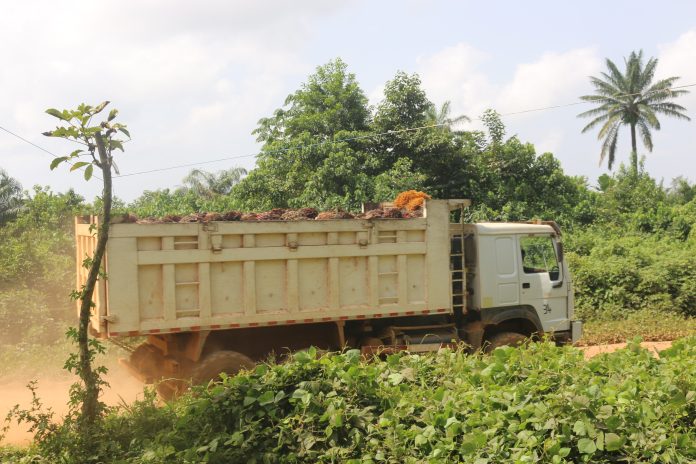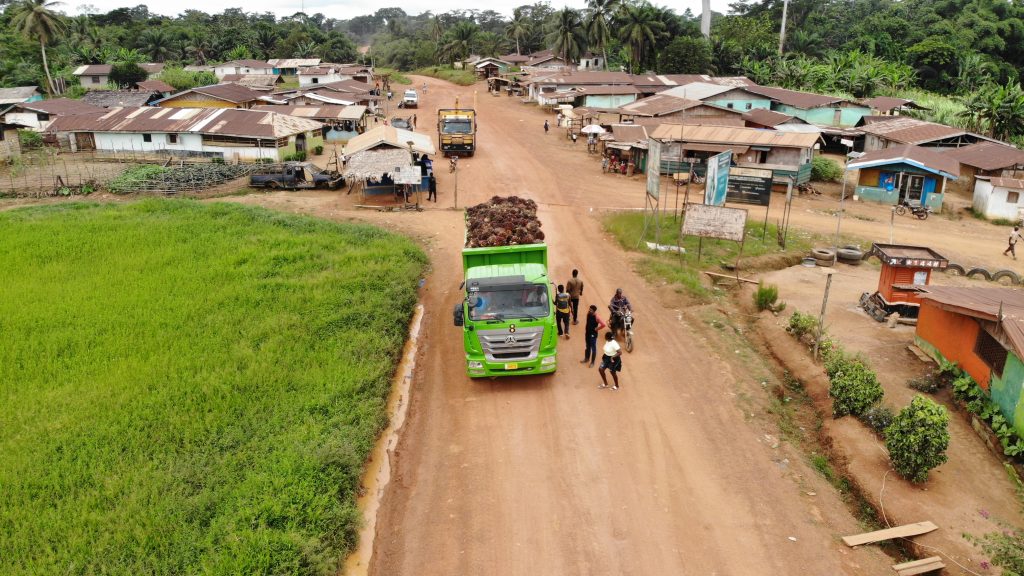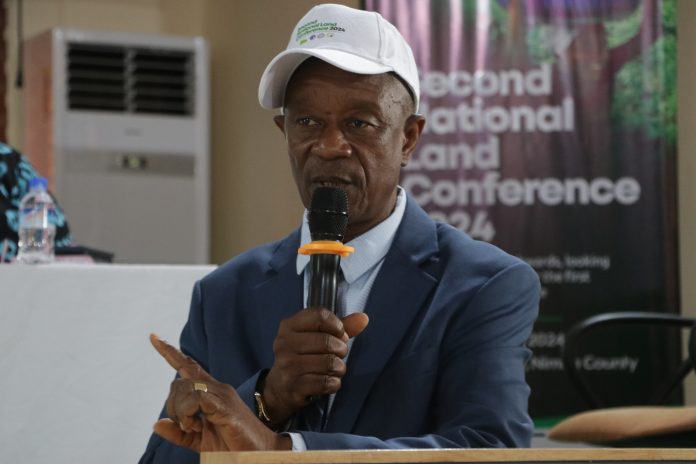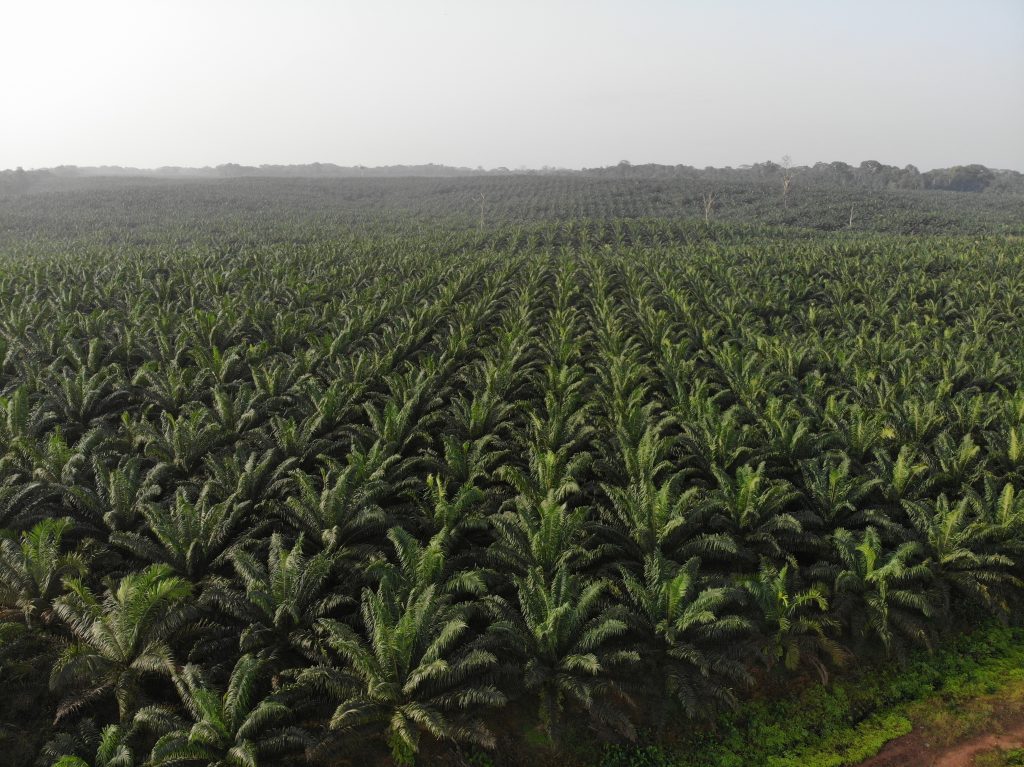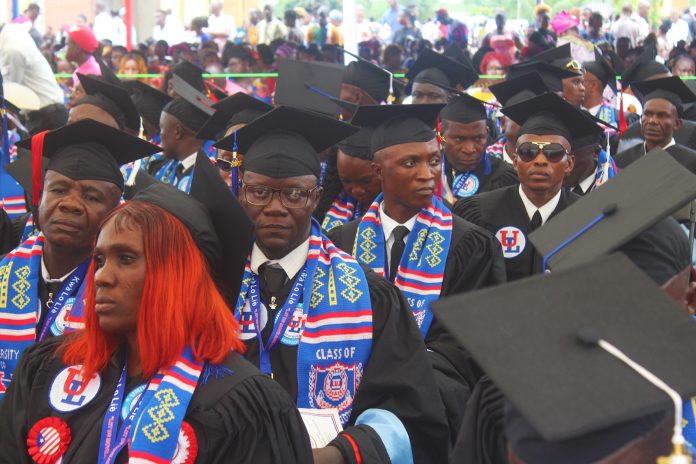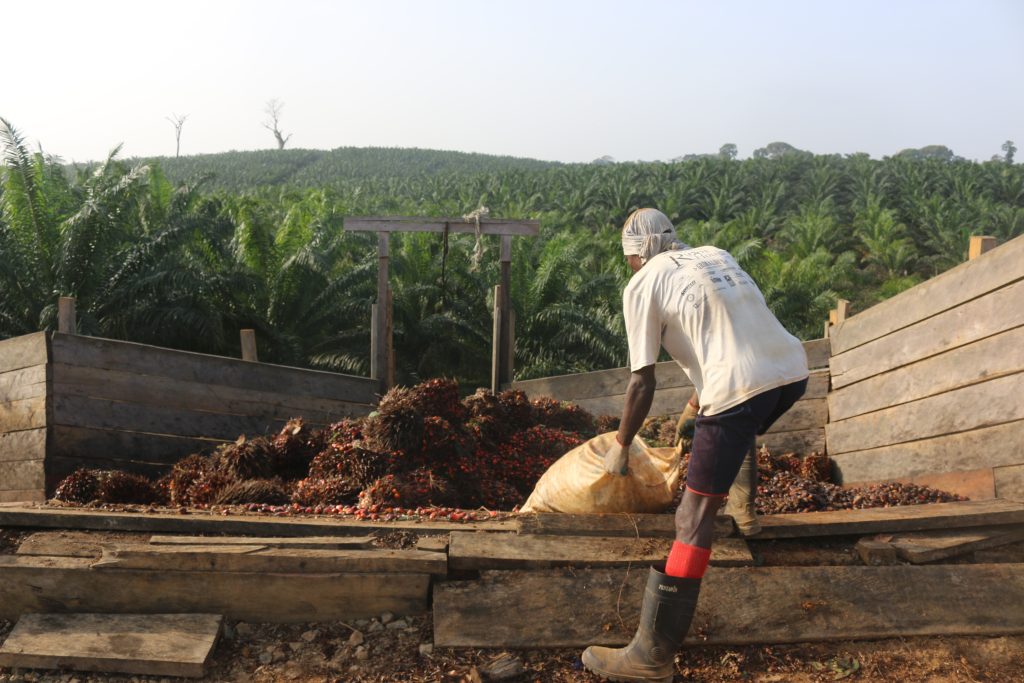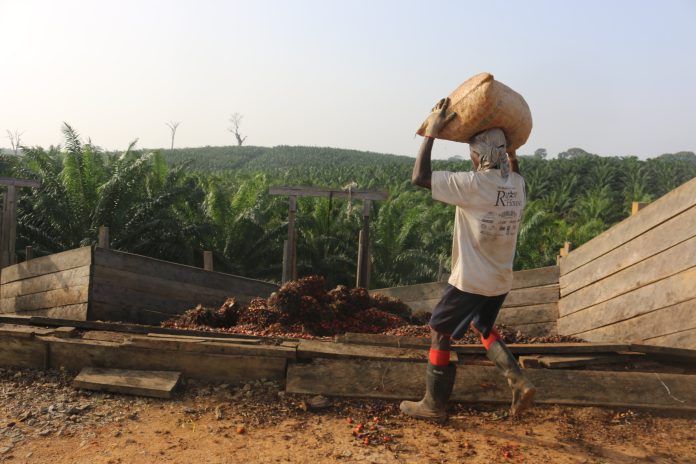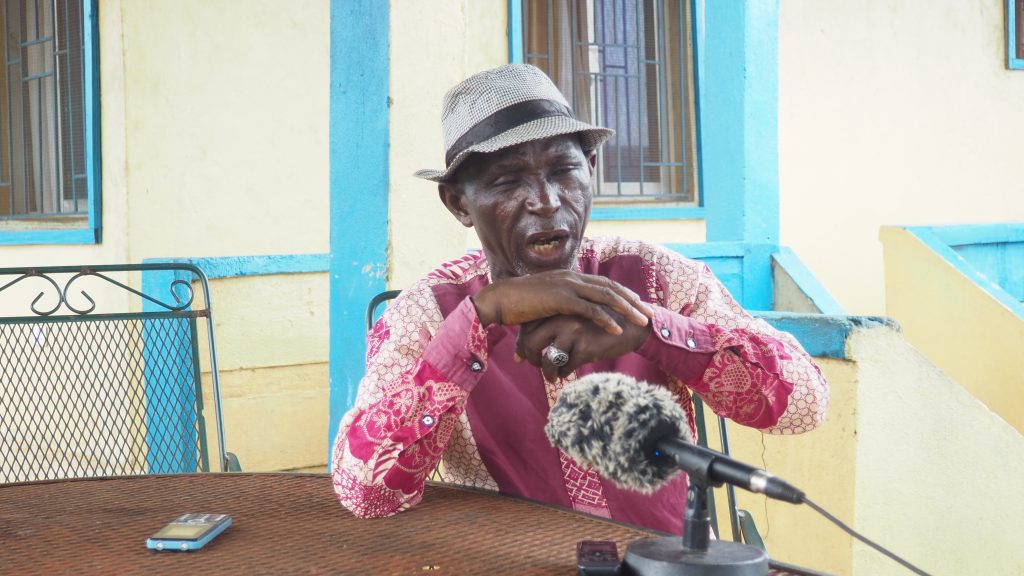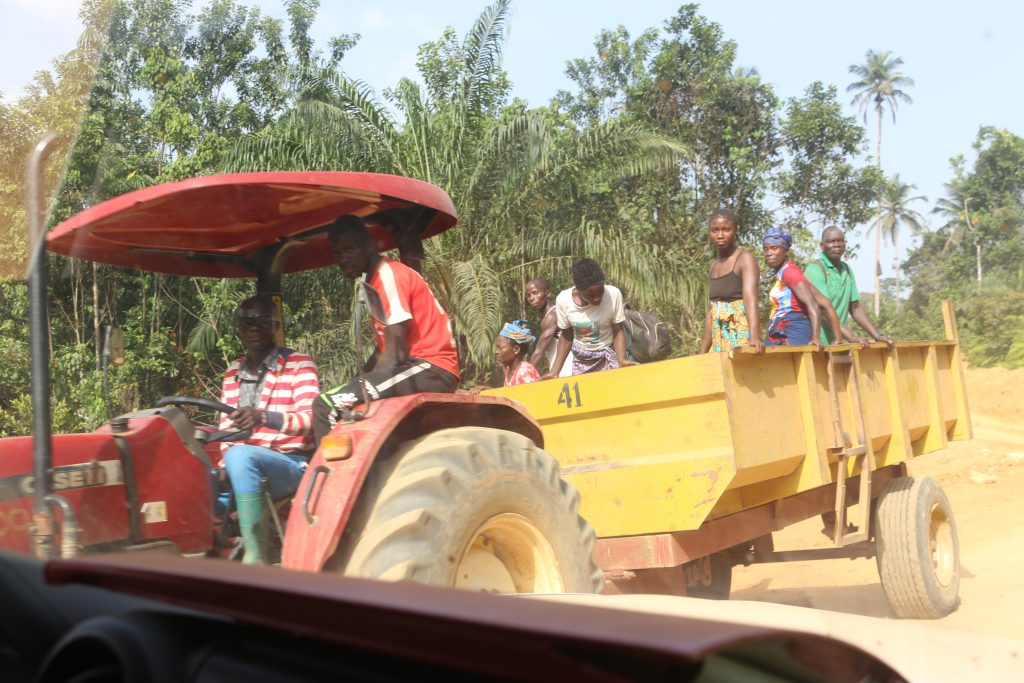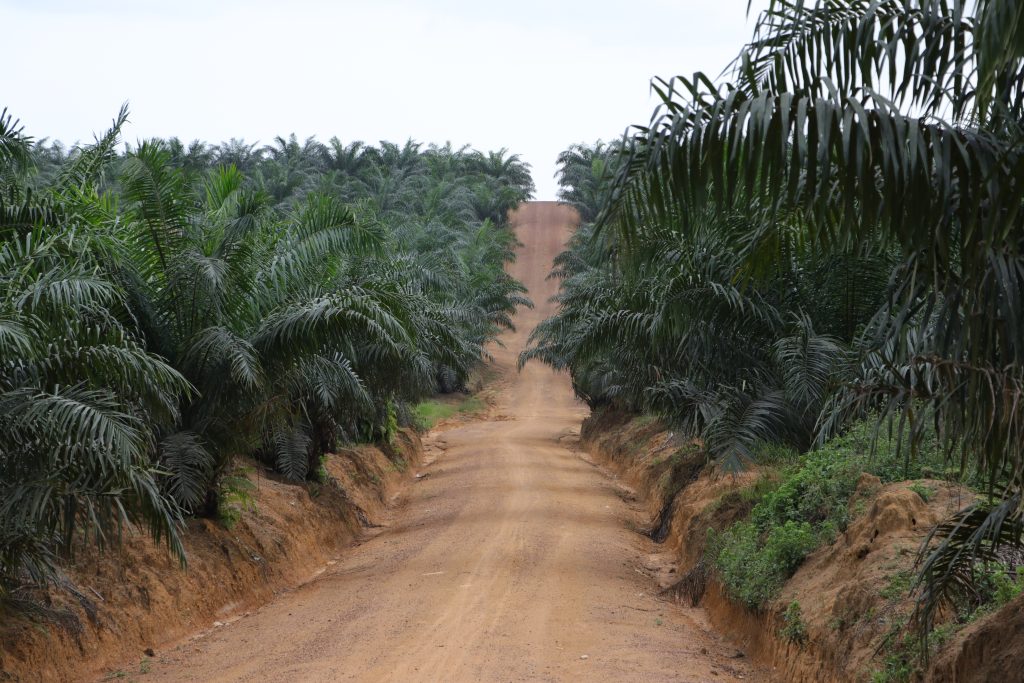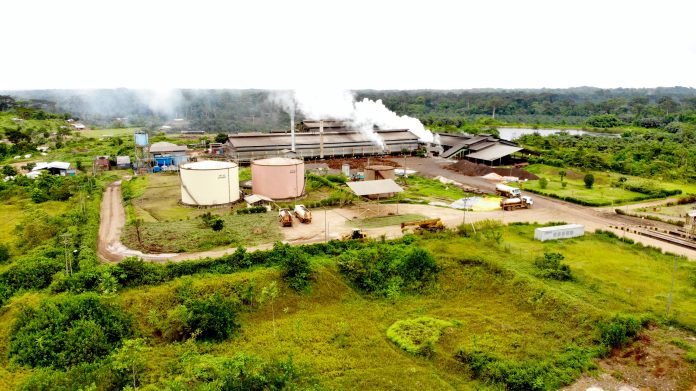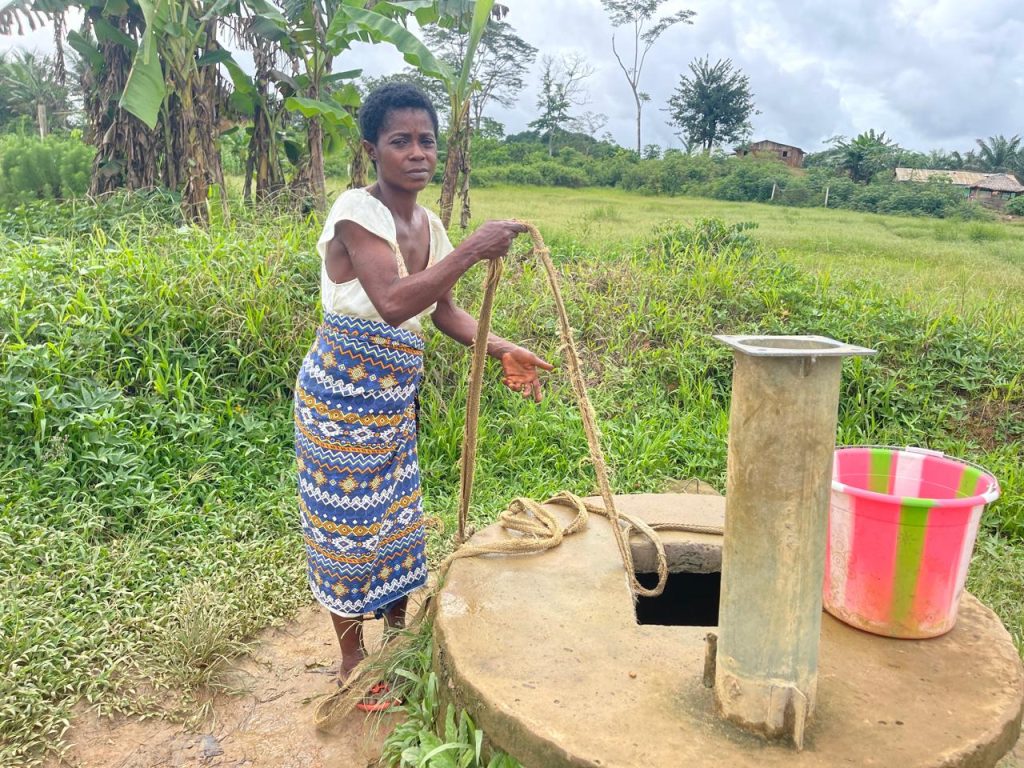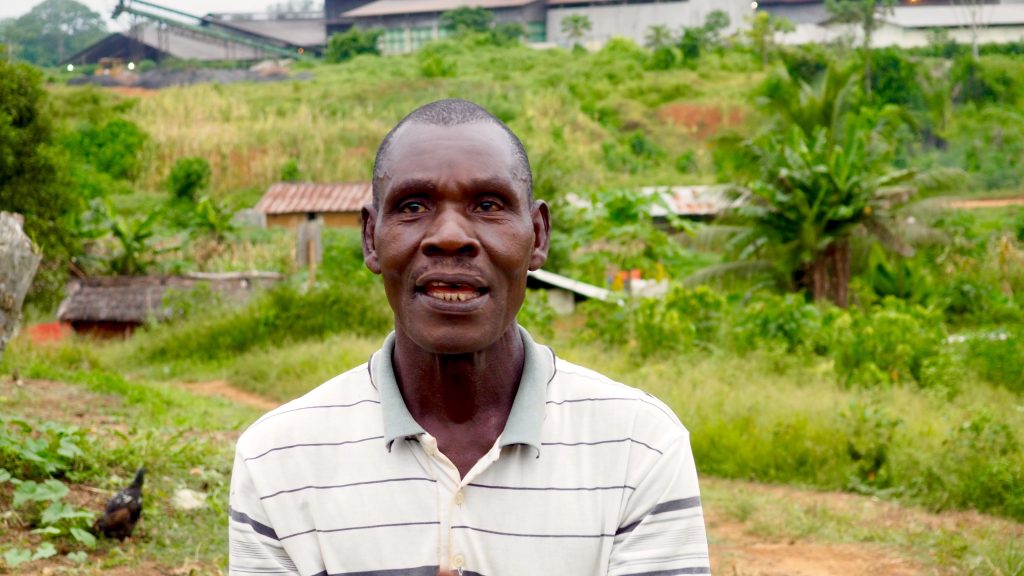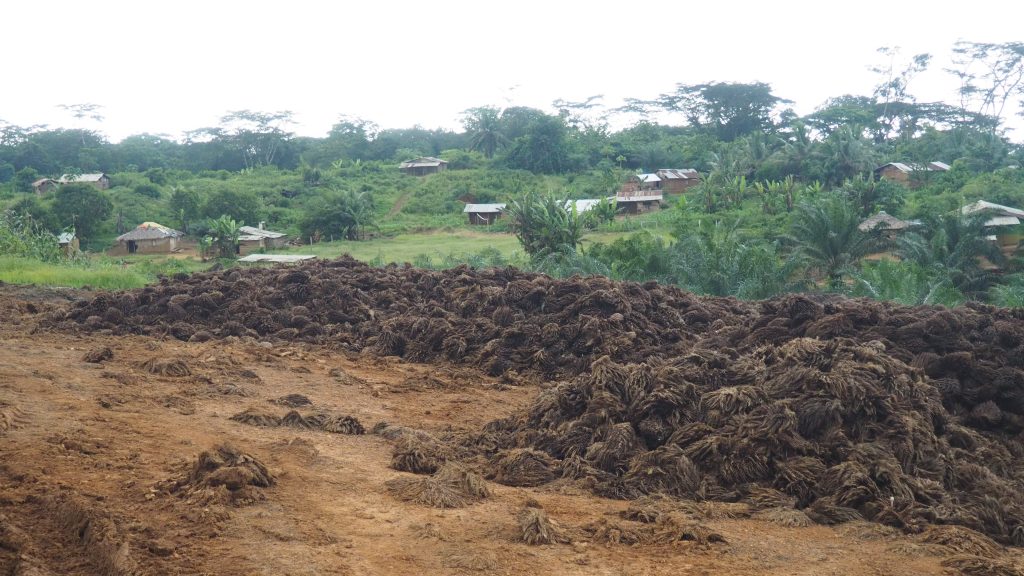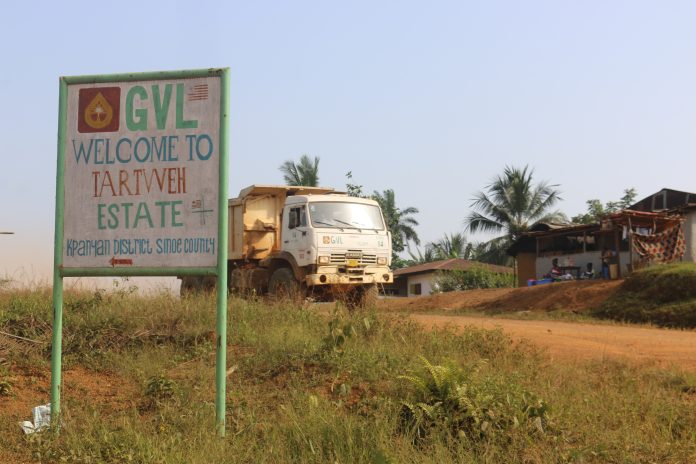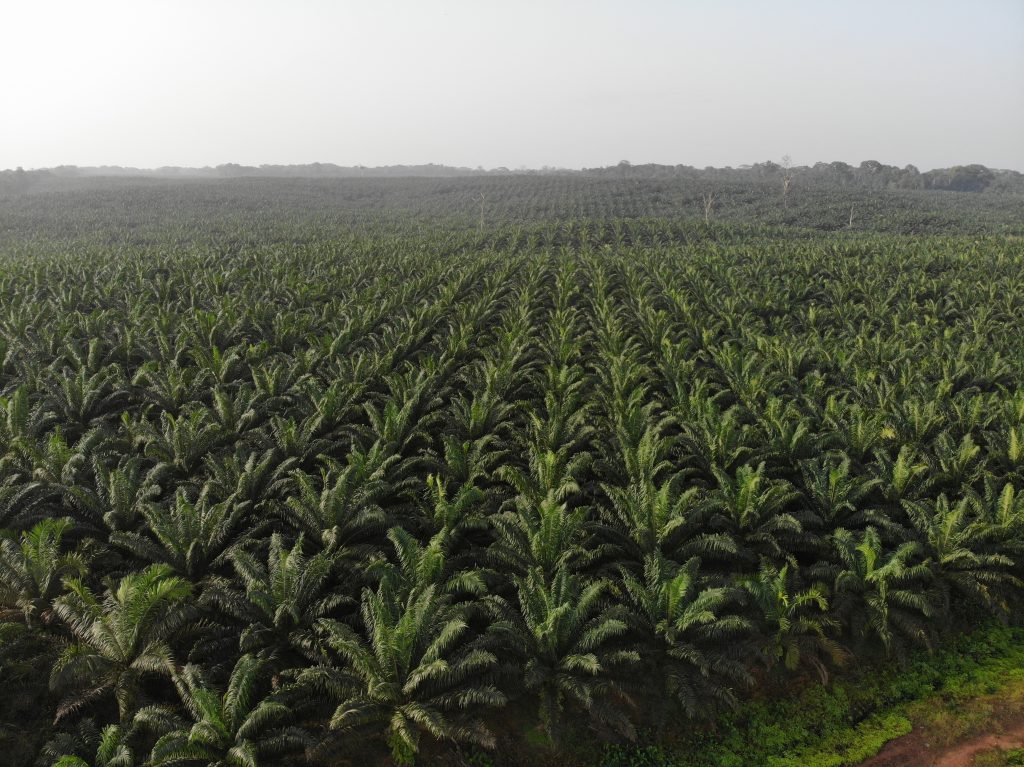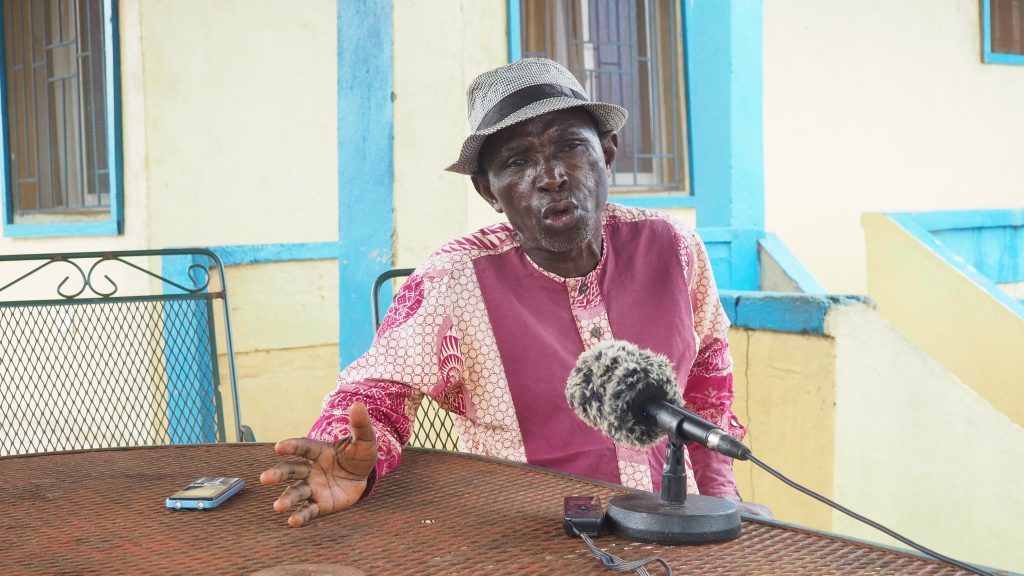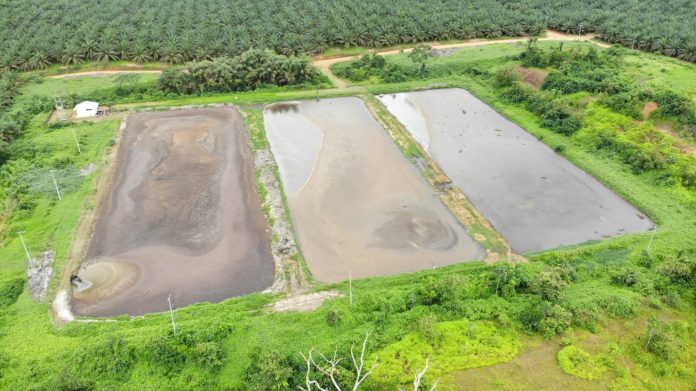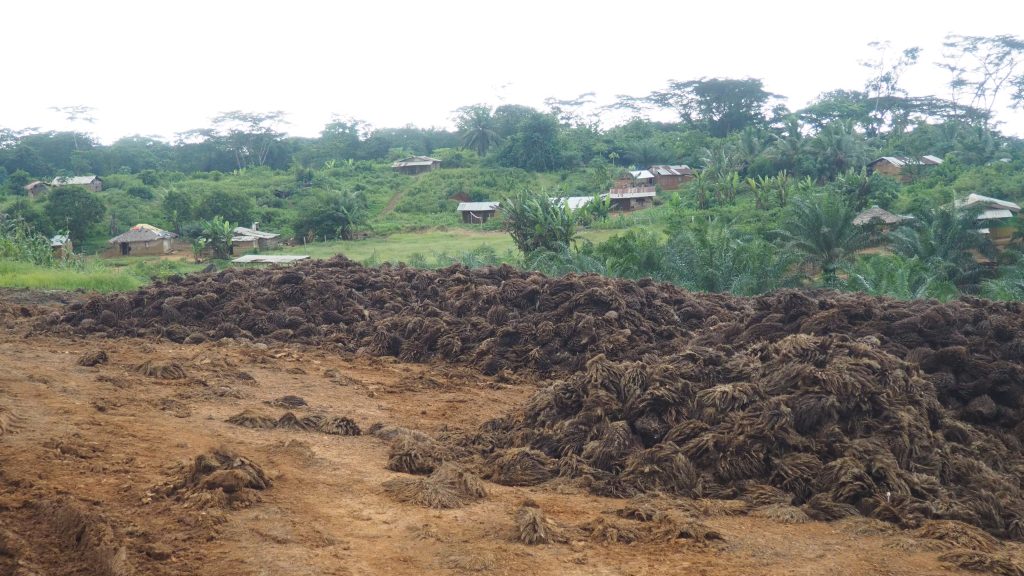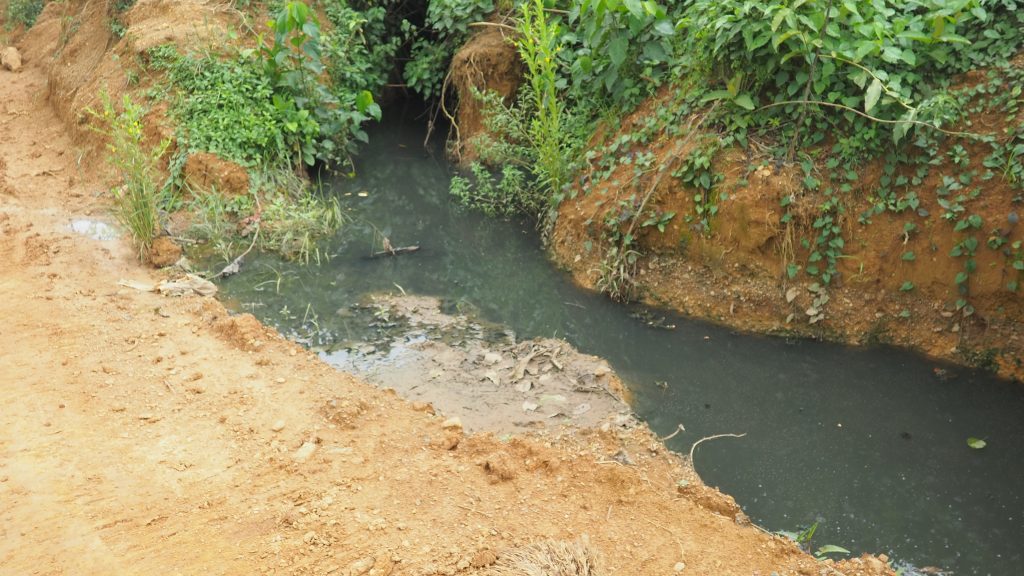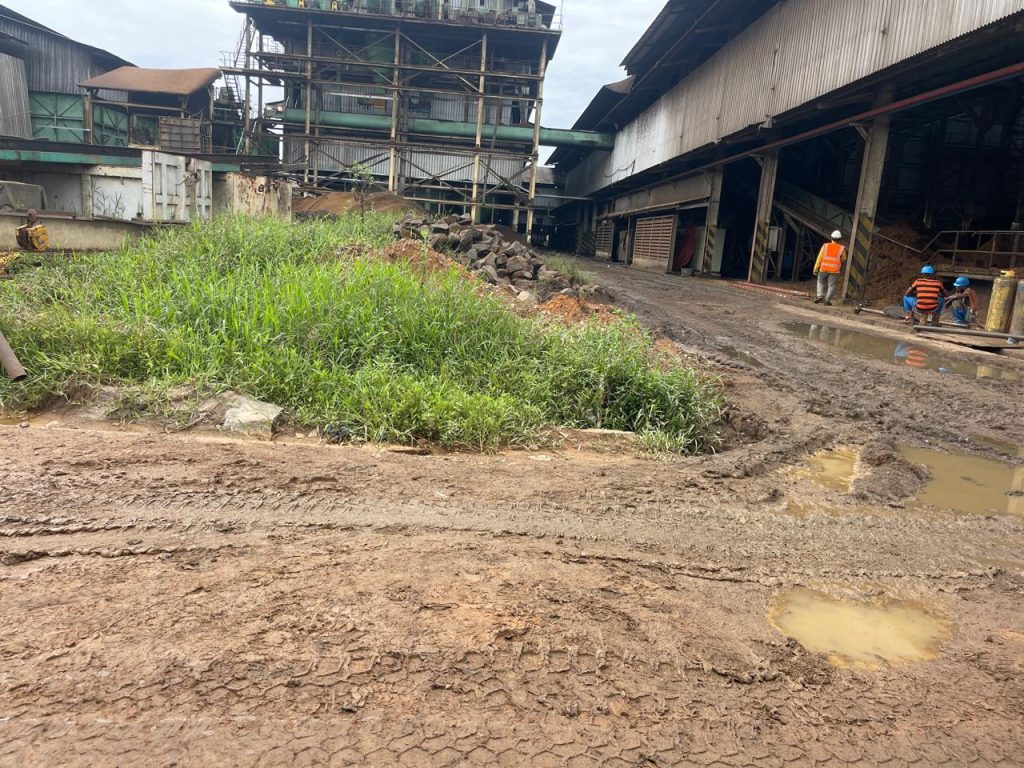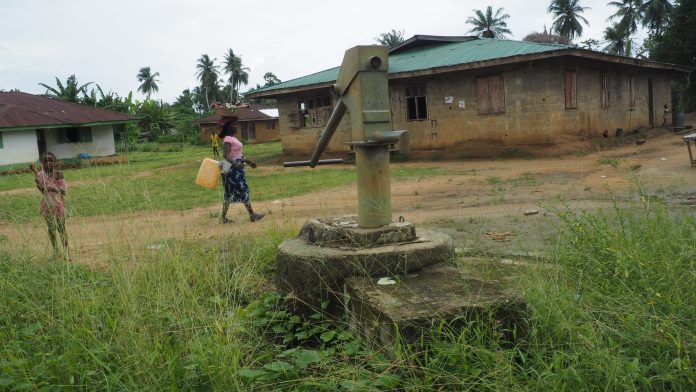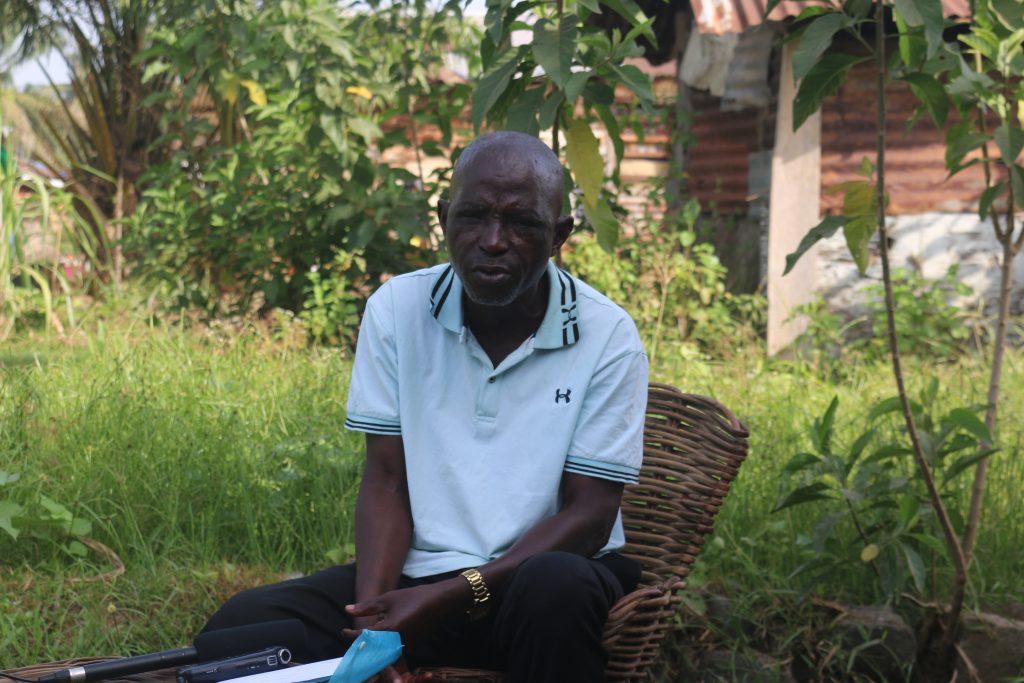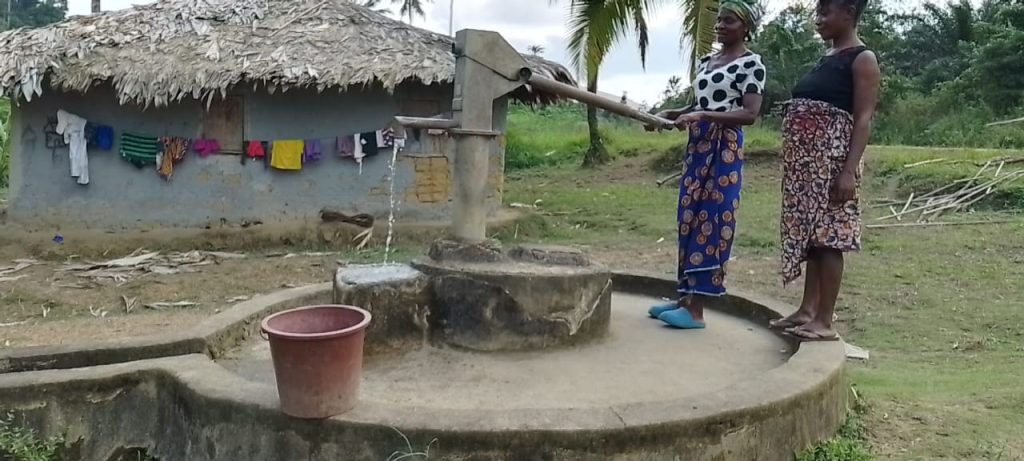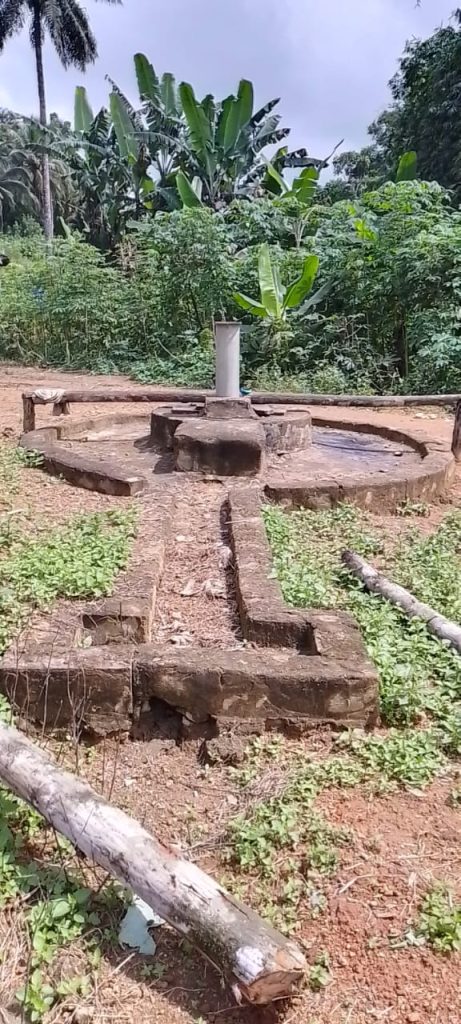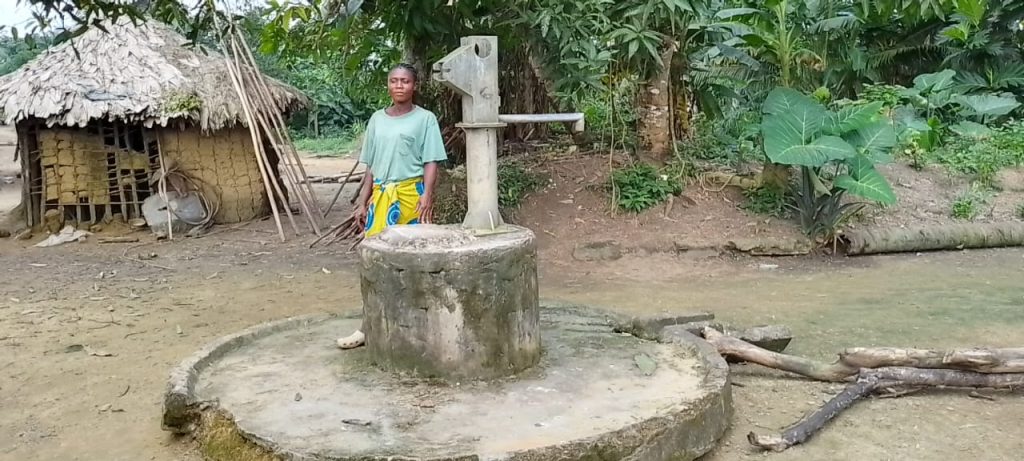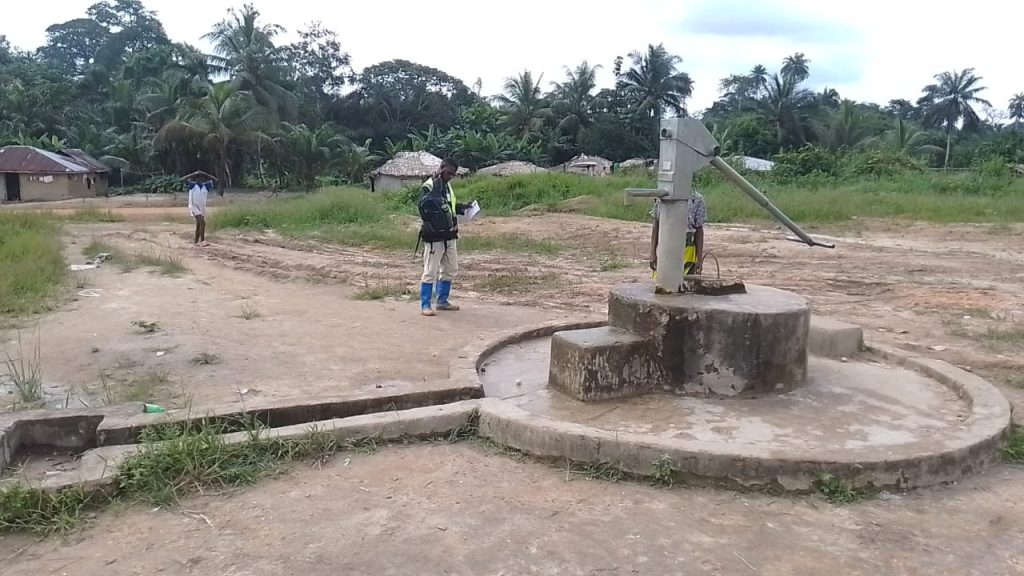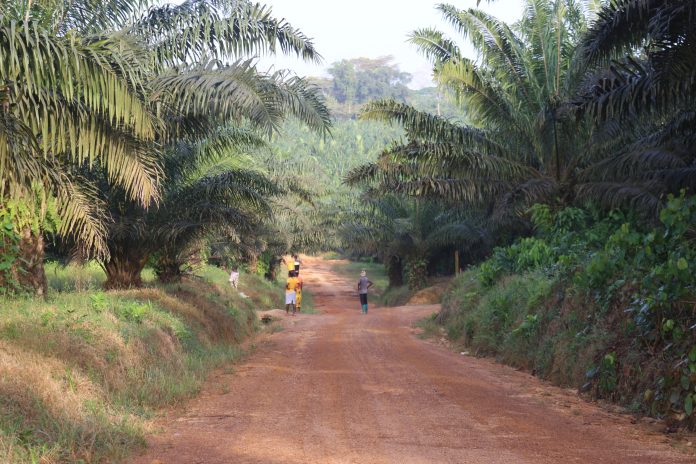GVL has lied about its operations several times in the last five months. The DayLight/Harry Browne
By James Harding Giahyue
MONROVIA—In August, The DayLight started a series of investigations into Golden Veroleum Liberia’s (GVL) operations. The newspaper has published over a dozen stories, pinpointing GVL’s abuse of communities’ rights and degradation of the environment.
Amid overwhelming evidence, the newspaper has published—documents, pictures/videos and interviews—GVL vehemently denies any wrongdoing.
But often those denials include false claims in attempts to mislead the public, as the company defends its well-documented, tainted record.
Behold six of the lies GVL has told in the last five months as the result of The DayLight’s reporting:
Must Seek Communities’ Consent to Share MoU
GVL has a list of MoUs it signed with communities on its website but the documents are not downloadable.
Before that first story, The DayLight asked the company for copies of the MoUs. However, GVL’s spokesman Alphonso Kofi denied the newspaper’s request.
In July, Alphonso Kofi, GVL’s spokesman, said that local communities needed to consent before the company could share the documents. “It can be shared if we obtained written consent for the communities,” wrote Kofi in an email.
Kofi’s claim contradicts the Freedom of Information Act and the Roundtable on Sustainable Palm Oil’s rules, known as principles and criteria.
Under the FOI Act, MoUs arising from concession agreements are public records.
Likewise, the first principle and criterion of the RSPO requires GVL to comply with such national law, and such documents are “made publicly available.” It even mandates GVL to keep records of requests for information and responses.
Concealing the MoU and GVL’s flawed interpretation of the document appears as a strategy to misinform the public. The DayLight obtained the documents from elsewhere, uncovering the company’s wrongdoings.
Unclear Responsibility to Maintain Hand Pumps
In response to the first part of The DayLight’s series in August—exposing GVL’s failure to build and maintain hand pumps in Tartweh-Drapoh, Sinoe County—GVL claimed that the MoU with the chiefdom was unclear as to who was responsible for maintaining the facilities.
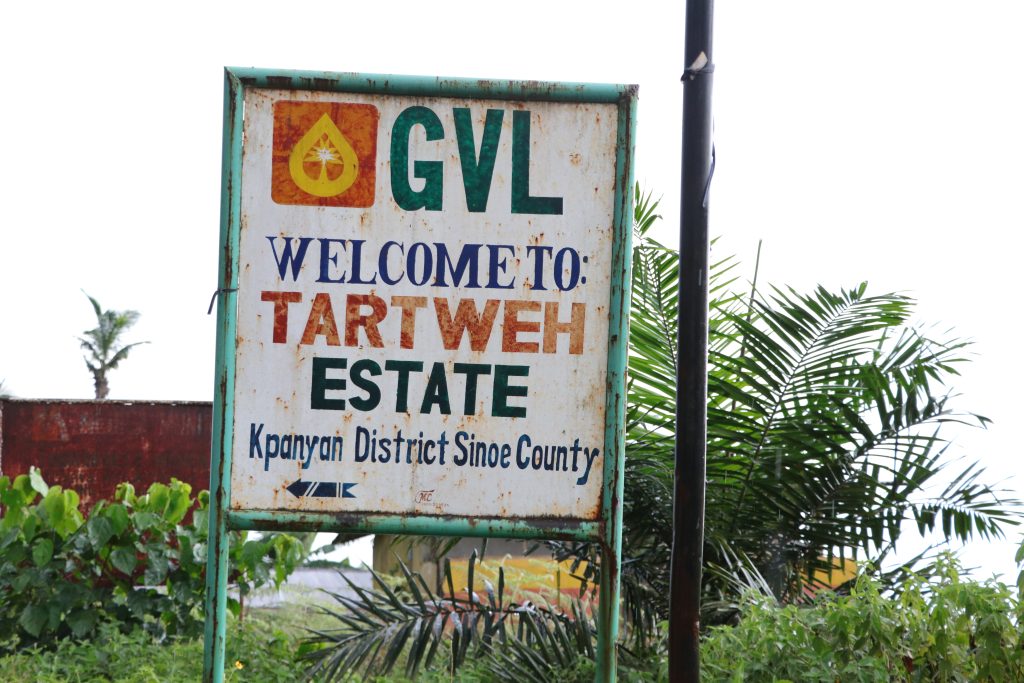
“GVL acknowledges feedback from communities that some hand pumps that it has constructed are not operating properly and require maintenance,” it said in a press release. “We also recognize that more clarity is needed to define who is responsible for maintaining pumps built by GVL and other parties.”
That claim contravenes the MoU. There is no need for clarity as the document plainly obligates GVL to build and repair the pumps, and even train locals to maintain the facilities.
Environmental Audit Found No Issues
In the same August press release, GVL claim that a DayLight report that a routine, independent audit found the company’s operations of a palm oil mill in the Tarjuwon District polluted water sources.
“We also ensure that water testing is done annually by an independent party as required by EPA regulations, read the press release. “Recent assessments conducted in 2023 and 2024 did not identify any issues. The results are available to the public.”
Turns out, the audit found the exact opposite: improper management of wastewater led to pollution of watercourses in the area. It revealed that there was a high risk of runoffs from poorly managed empty palm husks empying into waterways. A University of Liberia laboratory test showed an illegal level of phosphate and other substances in water samples harmful to humans.
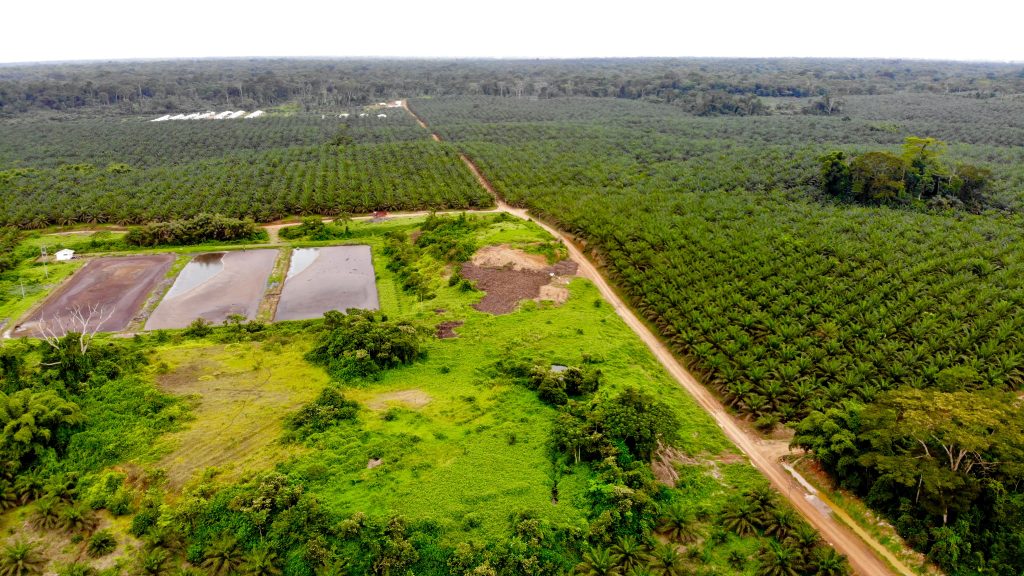
Also, water quality testing is done once every two years, not once every year.
A characteristically adamant GVL repeated the false claim earlier this month. The company accused The DayLight of inaccuracies and misleading views, without providing evidence.
Environmental Audit ‘Identified Recommendations’
In a press release earlier this month, GVL made more false claims, lessening the magnitude of the report’s findings. “While positive of GVL’s overall environmental record, the Tarjuwon [audit] identified a number of recommendations for improvement…,” read the release.
On the contrary, audit exposed a long queue of violations of GVL’s environmental permit and the Environmental Protection and Management Law of Liberia. It did not merely recommend as GVL implies. GVL mentioned “recommendation” five times in publication, avoiding the report’s walloping, negative findings.
The report even found that GVL had backslide on gains in a 2019 audit, and that it had not implemented auditors’ recommendations.
Takes Community Complaints Seriously
GVL claims that it takes community grievances seriously, stating a self-styled commitment to addressing complaints. It claimed in a release last month that it welcomed and addressed complaints.
The 2019 audit report supports that claim. However, the Tarjuwon audit report shows that GVL has relapsed in that part of its operations. Auditors graded the company 50-75 percent from a perfect score.
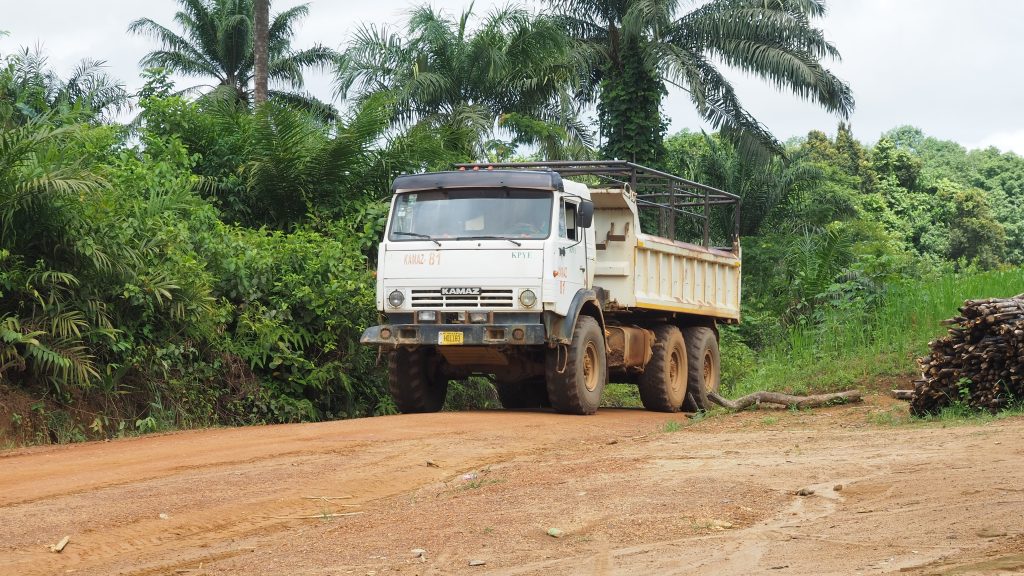
Land Authority ‘Decided Results’ of Land Dispute
In a periodic report to the RSPO last month, GVL appeared to suggest that the Liberia Land Authority had resolved a boundary dispute between the Du-Wolee Nyennue Township and the Numopoh District.
GVL claimed that the Land Authority would communicate “the result to both communities… in [the fourth quarter] of 2024 with new government officials.”
But the Land Authority dismisses those claims. The Chairman of the Land Authority Adams Manobah told The DayLight it was far from an outcome.
“We have not done that yet. The last solution we have is to go back and do the surveying and establish the boundary between the two communities,” Manobah said. “We are still waiting for the concession to provide the support so that we can have a definitive line between the two communities.”
The Green Livelihood Alliance provided funding for this story. The DayLight maintained editorial independence over the story’s content.

